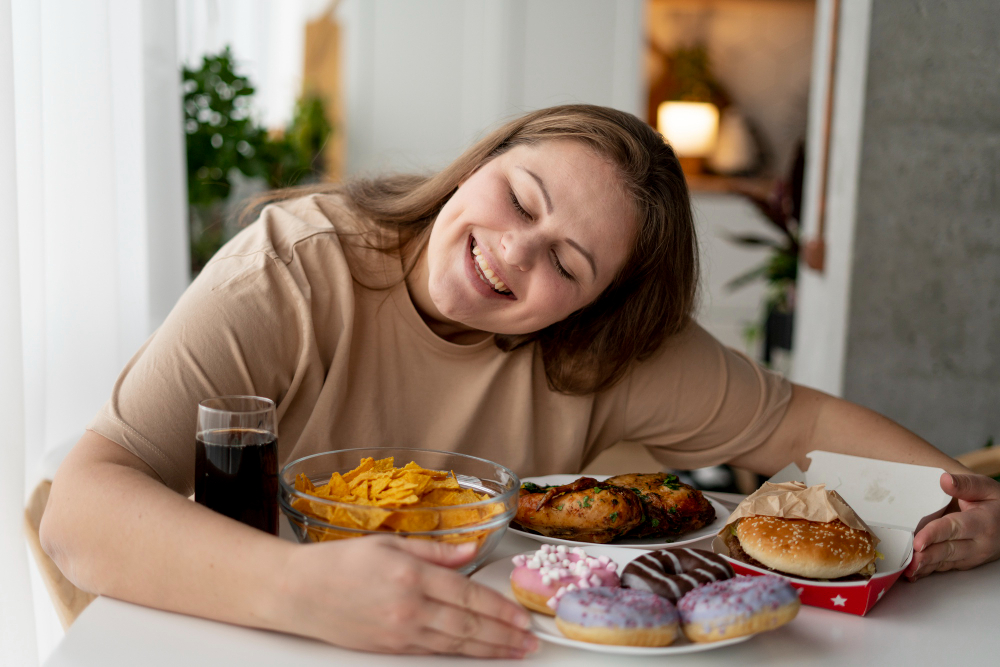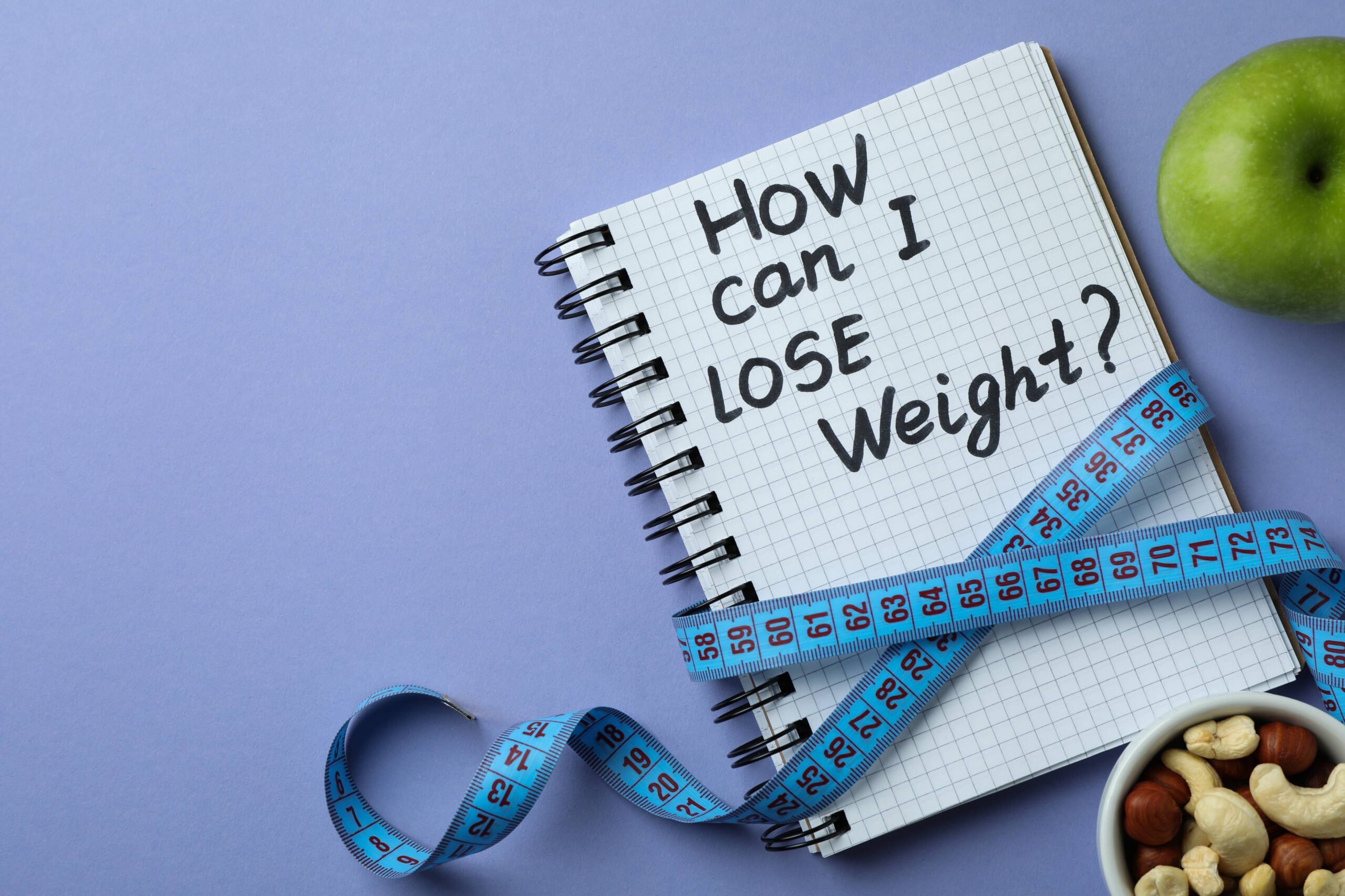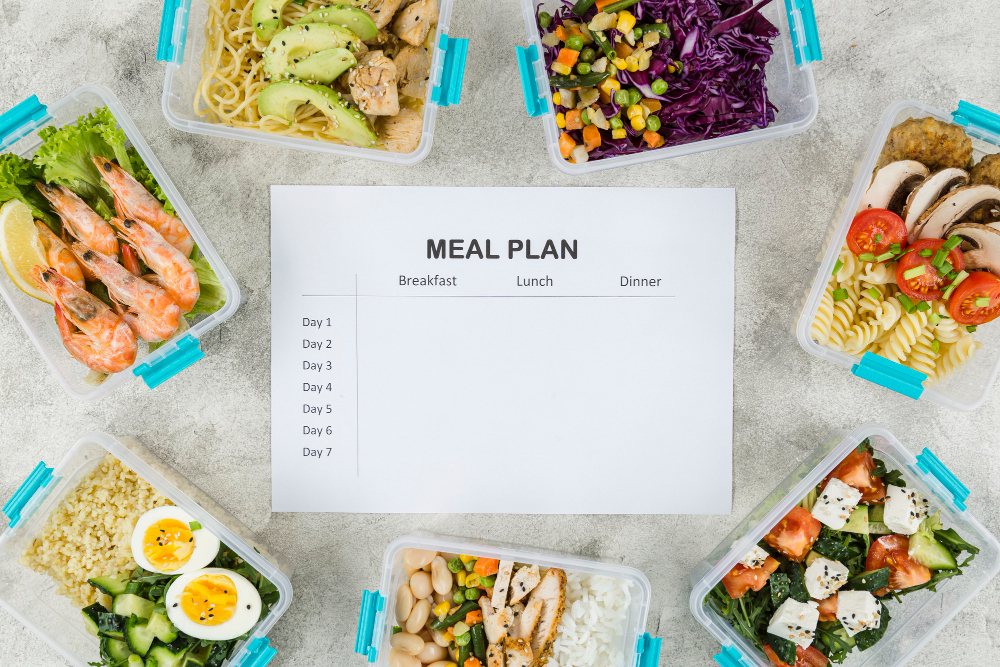Blog
Breaking Free from Emotional Eating and Losing Weight for Good

Learn How to Identify, Manage, and Overcome Emotional Eating Habits with Support from Alternate Health Club
When stress hits, do you reach for a snack instead of support? You’re not alone. Emotional eating is one of the most overlooked causes of weight gain, especially in women juggling work, motherhood, and life’s daily demands. At Alternate Health Club, we believe that understanding the “why” behind your eating patterns is just as important as counting calories or taking medication.
In this comprehensive guide, we’ll explore how emotional eating sabotages your health goals—and what you can do to finally take back control.
What Is Emotional Eating?
Emotional eating is the tendency to consume food—often high-calorie, sweet, or processed—in response to feelings rather than hunger. It’s a form of self-soothing that masks difficult emotions like:
- Stress and anxiety
- Loneliness or sadness
- Anger or frustration
- Boredom or fatigue
Unlike mindful eating, emotional eating is impulsive. It often leads to overeating and guilt, creating a vicious cycle of shame and poor self-image.
Signs You Might Be an Emotional Eater
- Cravings come on suddenly (not gradually like physical hunger)
- You eat even when you’re full or shortly after meals
- You often eat alone or in secret
- You feel guilt or regret after eating
- Food is your go-to for comfort or distraction
Understanding your patterns is the first step in learning how to lose weight sustainably. We work with clients every day who feel powerless—but you’re not. Change starts with awareness.
🔗 Explore sustainable weight loss strategies
Why Emotional Eating Disrupts Weight Loss
Here’s the thing: emotional eating overrides your body’s natural hunger cues. This leads to excessive calorie intake and sabotages your metabolic rhythm.
Other consequences include:
- Insulin spikes from sugar-laden foods
- Increased fat storage (especially visceral fat)
- Stress-related hormonal imbalances
- Sleep disruption, which further impacts cravings
Many of our clients come to us after trying restrictive diets, only to binge when stress hits. That’s why we offer medical guidance and coaching—not judgment.
🔗 Why cheap weight loss fixes often backfire
Triggers Behind Emotional Eating
Let’s break down common causes that fuel emotional eating:
Hormonal Changes
Women, especially after 30 or post-pregnancy, face fluctuating estrogen and progesterone levels. These shifts can amplify cravings and emotional sensitivity.
🔗 Learn how weight loss changes after 30
Stress and Cortisol
High cortisol levels drive hunger for “comfort” foods while suppressing willpower. That’s why you crave chips—not carrots—when overwhelmed.
Sleep Deprivation
Lack of sleep throws off ghrelin and leptin—hormones that control hunger. You wake up tired and reach for quick energy in the form of sugar or carbs.
Restriction
Overly strict diets often lead to emotional outbursts. The body sees calorie cuts as deprivation and demands “reward.”
How to Break the Cycle of Emotional Eating
You don’t need to rely on willpower alone. Here’s a step-by-step breakdown:
1. Keep a Food-Mood Journal
Log what you eat and how you felt before and after. This helps uncover hidden emotional patterns.
2. Build Emotional Coping Strategies
Instead of food, try:
- Walking
- Journaling
- Talking to a friend
- Listening to music
- Practicing deep breathing
3. Make Your Environment Work for You
Keep trigger foods out of the house. Stock your fridge with healthy, easy-to-reach options.
4. Get Medical and Nutritional Support
Medication can reduce cravings and increase satiety. Our clinicians at Alternate Health Club offer:
- Semaglutide and Tirzepatide programs
- Mindful eating resources
- Hormonal analysis and wellness coaching
🔗 See how Tirzepatide supports sustainable weight loss
🔗 Compare Semaglutide vs Tirzepatide
The Role of Medication in Managing Emotional Eating
GLP-1 medications like Semaglutide and Tirzepatide are changing the game for emotional eaters. Here’s how:
- Suppress appetite and increase satiety
- Reduce food noise (obsessive thinking about food)
- Help you reset hunger cues
🔗 Discover the power of Semaglutide for women
Why Long Island Women Are Turning to AHC for Help
In Nassau and Suffolk Counties, our clients are finding success by treating emotional eating as a medical and psychological issue—not a willpower problem.
AHC’s approach includes:
- Weekly check-ins
- Licensed providers
- Compounded Semaglutide with guidance
🔗 What you need to know about compounded meds
Transform Your Relationship with Food—For Good
Imagine this:
- You no longer eat out of guilt or boredom
- You listen to your body—not emotional triggers
- You enjoy meals without fear of spiraling
That’s the freedom we want for every client at AHC.
If you’re ready to stop emotional eating and finally reach your goals, we’re here.🔗 Get started with medically guided support












